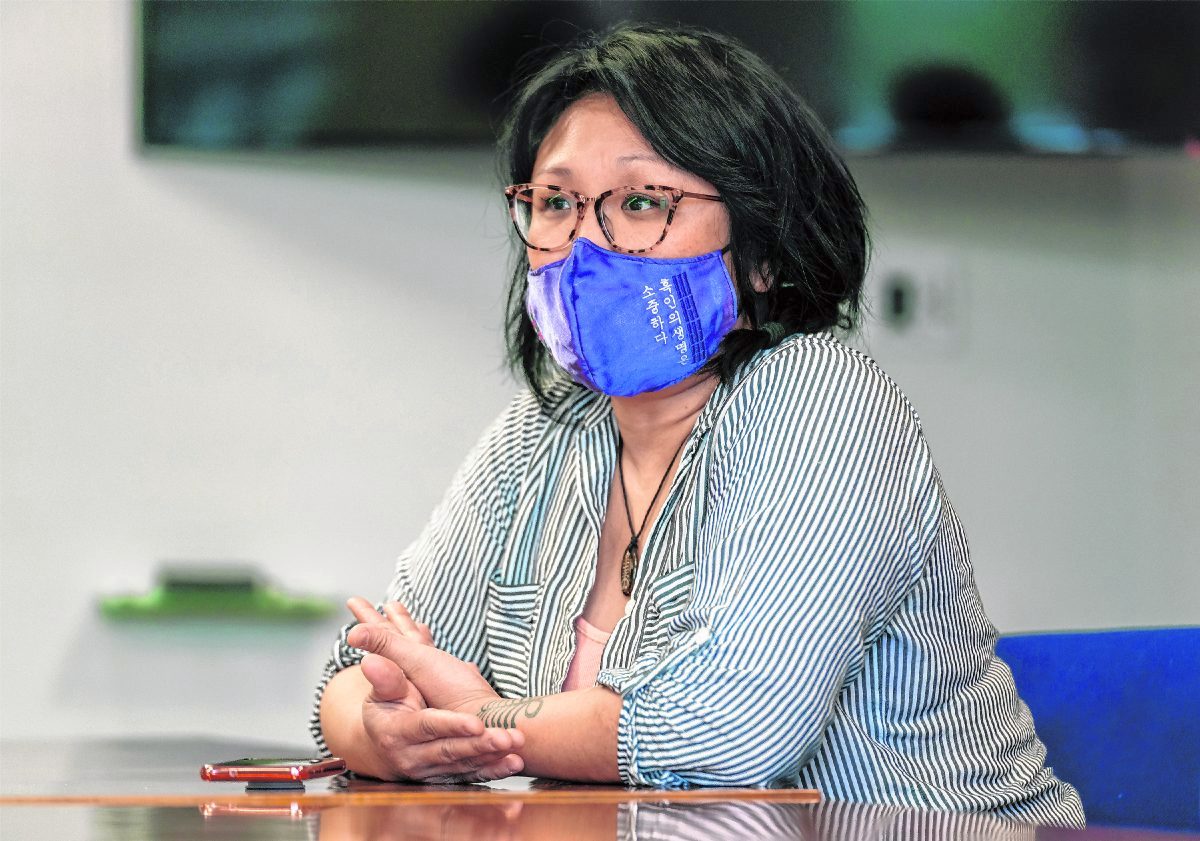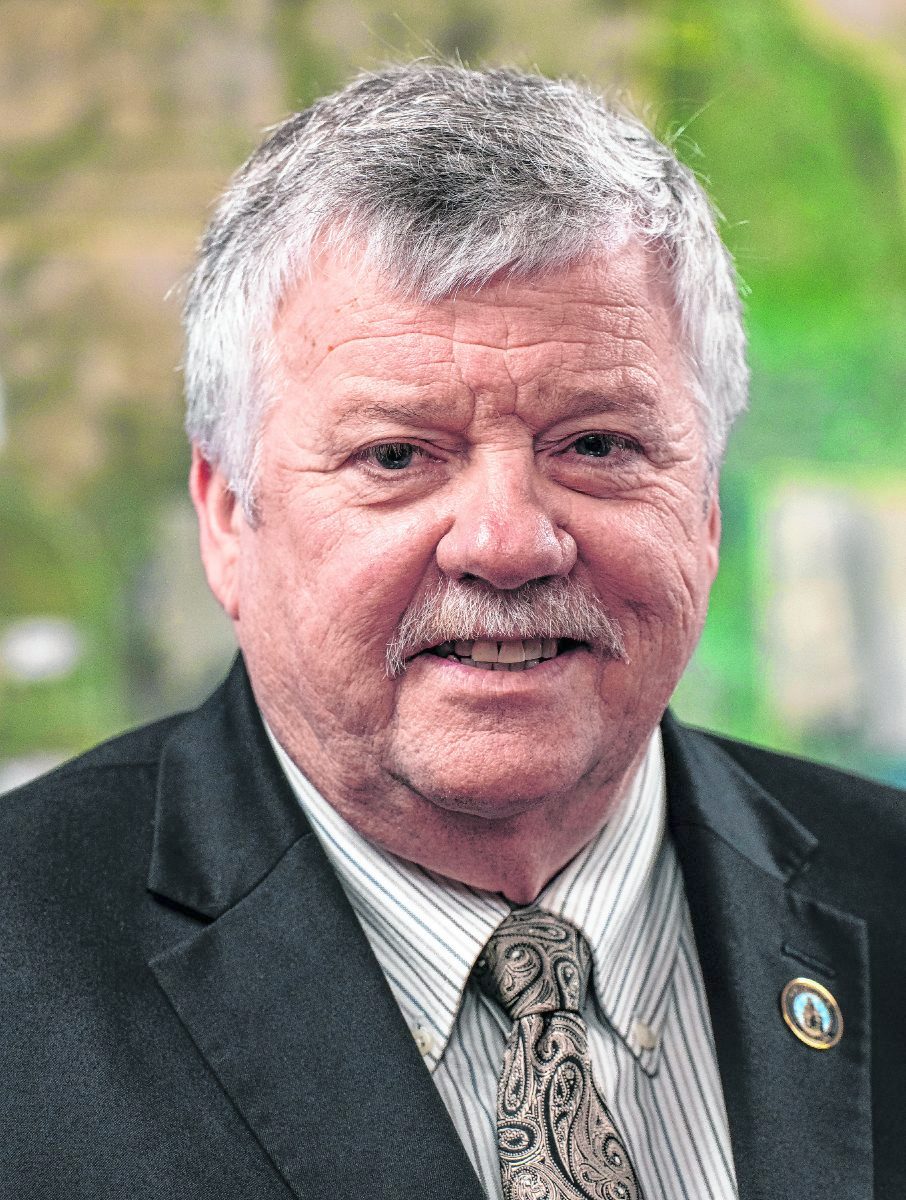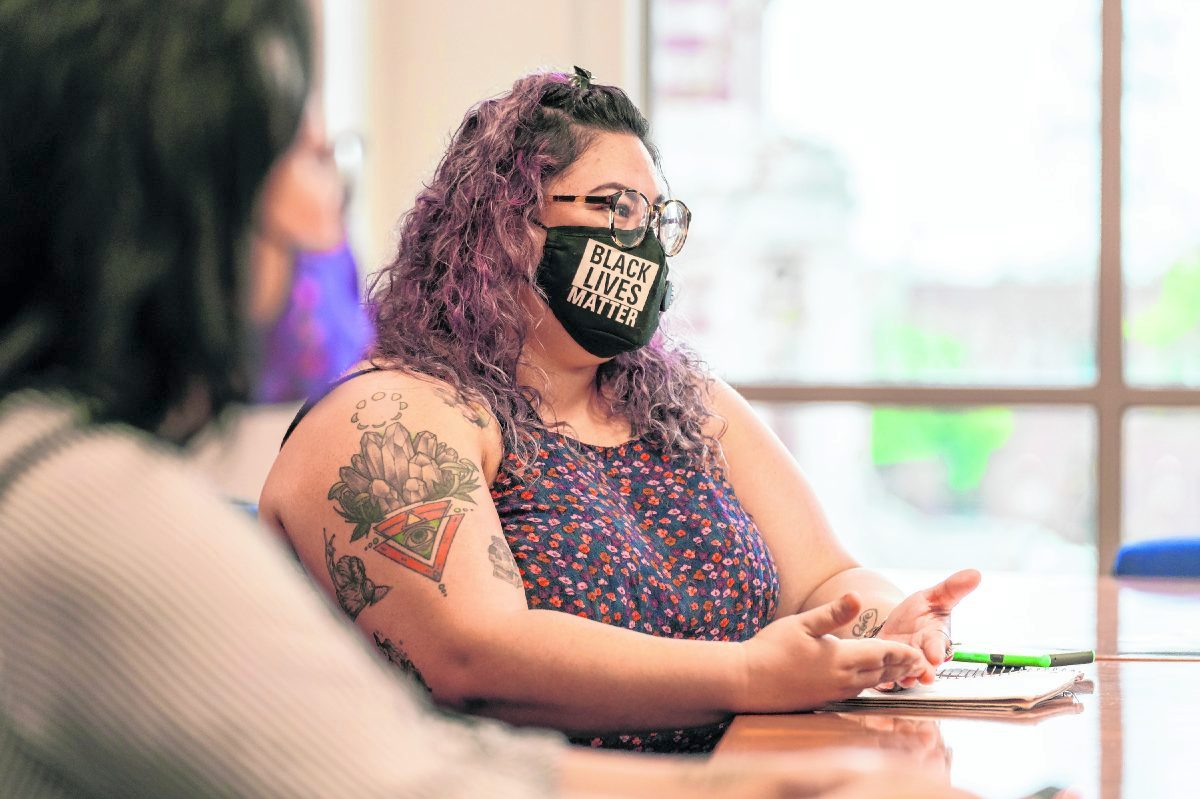Two Franklin moms teamed up to form an organization that advocates for the acceptance and inclusion of diverse residents.
Jessica Daudy-Hamm and Michelle Waugh-Dahl are two members of the 4% in Franklin. The Asian Americans are among a small but proud minority community in the city.
When George Floyd was killed by Minneapolis police officer Derek Chauvin last April, they were among the Johnson County residents of all races who were outraged by Chauvin’s conduct.
More than that, they were upset about systemic racism across the country, and that more was not being done in their own city to actively include and protect minorities.
Like millions across the United States and thousands in Indiana, they felt called to action.
Daudy-Hamm and Waugh-Dahl took it a step further and organized a few protests on the courthouse square, one of which drew about 30 people.
The rallies, along with a Juneteenth celebration, were organized with like-minded friends, they said. Juneteenth, celebrated on June 19 each year, marks the day the last slaves were freed following the Civil War.
The rallies got the attention of the Franklin Police Department and Mayor Steve Barnett. City officials sat down with Daudy-Hamm, Waugh-Dahl and others with the organization to go over ways the city can be more inclusive.
“It (the local movement) echoed the voice of a nation. But people in Franklin had a hard time accepting specifically why it should be important to the people of Franklin,” Waugh-Dahl said. “But we did receive some support and that is how it organically grew. That core group of us wanted to continue that conversation with our city officials and our police.”

After those conversations, city officials agreed to carry out some of the changes the group asked them to consider.
The city spent nearly $600,000 on body and in-car cameras for all of its police officers, hired a crisis management officer at the police department, implemented diversity, inclusion and implicit bias training for all city employees, and made books such as “How to be an Anti-Racist” and “White Fragility” available to city employees. Anti-racism is the act of actively opposing racism and promoting racial tolerance.
Body cameras were already in process for about two years prior to the conversation, Barnett said.
The city is also in the process of hiring a human resources employee who would assist with additional diversity and inclusion efforts, Barnett said.
The city and Franklin Community Schools issued a joint proclamation to support inclusivity in the city. Students from Barnett’s Youth Leadership Council also painted a mural focused on diversity and inclusion on the electric box at the intersection of Jefferson and Main streets.
Barnett acknowledges he did not meet all the coalition’s requests, but said he made compromises that got the ball rolling toward new policies, and encouraged city employees to learn how to be anti-racist, he said.

“I never want anyone in our community to be treated differently based on the color of their skin. I can’t control individuals or their beliefs and behaviors, but I believe our actions are definite steps toward a more inclusive community,” Barnett said.
“I will continue to meet with individuals in our community and engage in meaningful conversations around their concerns. I don’t have all of the answers, but I’m willing to listen to residents, hear suggestions and react appropriately as a government agency.”
Recently, the group asked for a proclamation supporting Asian and Pacific Islanders (AAPI) following the murder of six Asian women in Atlanta. The city did not issue one.
Though Barnett did not make a public proclamation, he sent letters to each of the city’s 19 AAPI-owned businesses. Barnett expressed in the letters that they are valued members of the community, and offered to help out in any way that is needed, he said.
Daudy-Hamm and Waugh-Dahl are continuing to advocate and hope the city will do more to support inclusivity in the future. However, they are learning much of that change will come with time.
When the pandemic started to ramp up in October, the group expanded its online activism and created the “Franklin Equity and Justice Coalition” Facebook group to share its work with the community.
There are now more than 400 members in the group. They share current events, learning opportunities and ways to help the organization reach its goals of equity and justice.
The mission has evolved in the past year to focus on celebrating diversity. They know they won’t change minds overnight, but they will continue to work toward a more inclusive city where everyone feels safe.
“There was a lot thinking, ‘what can I do,’ ‘what can we do,’ ‘what can the community do as a whole,’” Daudy-Hamm said. “It was the diving board into what we have now. It has taken a little bit to really get to that point (now), where it is starting to be a huge vision and a lot of dreams.”
Instead of just asking the city for help and a seat at the table, they are creating a new table where all are welcome, Waugh-Dahl said.
“We were asking gatekeepers for something that doesn’t belong to them. Our identities, our representation, our voices are ours — that’s the community we want to build,” Waugh-Dahl said.
“We want people who look and sound like us to have a seat at a table. It may not be the table we initially thought we needed to be at, but they have a seat at a table where they are welcome.”
They are building that table with minorities and white allies who are recognizing their own internalized racism, they said.
Even as Asian and Pacific Islander women, Daudy-Hamm and Waugh-Dahl have both come to terms with internalized racism as they grew older, they said.
“I have even made jokes about Asians. And I catch myself doing it still. I have to tell myself, ‘I shouldn’t say that about myself,” Daudy-Hamm said.
They have been told to go back to their counties, though they are United States citizens, and they have had racial slurs directed at them their entire lives, even in childhood. Now, they’re organizing a local movement to stamp it out.
“Before I kept my mouth shut,” Daudy-Hamm said. “But now, people who are close to me are like, ‘why are you mad about it now?’ But it is not only increasing more and more as I get older, but it is that past trauma from it that is seeping back up … after all that time.”
They hope the group can help start to heal the local minority community, and make Franklin a more inclusive place for their children to grow up in, they said.
“It is such a trigger word: racist. People automatically correlate it with their character and whether or not they are good or bad people,” Waugh-Dahl said. “Having this conversation is not about judging them; it is a learning opportunity. I didn’t always think this way either.”
Opposition they’ve met in person and online is proof that there is a lot of work to be done. There are still people who don’t believe them when they share stories of racist encounters, they said.
During last year’s rallies, there were unfounded fears that they would escalate as they had in other major cities, but they never did, Daudy-Hamm said.
The only point of contention was chalk messages written on the sidewalk around the Johnson County courthouse at a small rally in July, she said.
Those messages supported people of color — including Floyd — who were killed at the hands of police officers, she said. There were also general messages promoting acceptance and equity, such as: “Love More.”
Franklin firefighters washed away the messages because the group did not get permission to use county property.
They still wonder whether the chalk was really washed off due to the messages themselves, Waugh-Dahl said.
Moving forward, the group’s hope is to make diversity more accessible and the city more inclusive through activism and celebration.
“Not only do I want this to be a springboard for more culture, more celebrations. I also want this to be a springboard where we can fight for justice,” Daudy-Hamm said.
“We are a (domestic) nonprofit (corporation), so we are not here to take a political stance. But I want people to understand that fighting social injustices is not a political stance, it is about humanity and human rights.”
There are plans to celebrate Juneteenth again this year and add more celebrations next year to recognize all the diverse cultures in Franklin, including the LGBTQIA+ community.
[sc:pullout-title pullout-title=”How to help” ][sc:pullout-text-begin]
To learn more about how you can help join the group on Facebook under “Franklin Equity and Justice Coalition,” or like the Facebook page by the same name.
Donations to the coalition to fund future events and initiatives can be made through the Love More website, lovemoresign.com, under the “shop” menu.
[sc:pullout-text-end]





